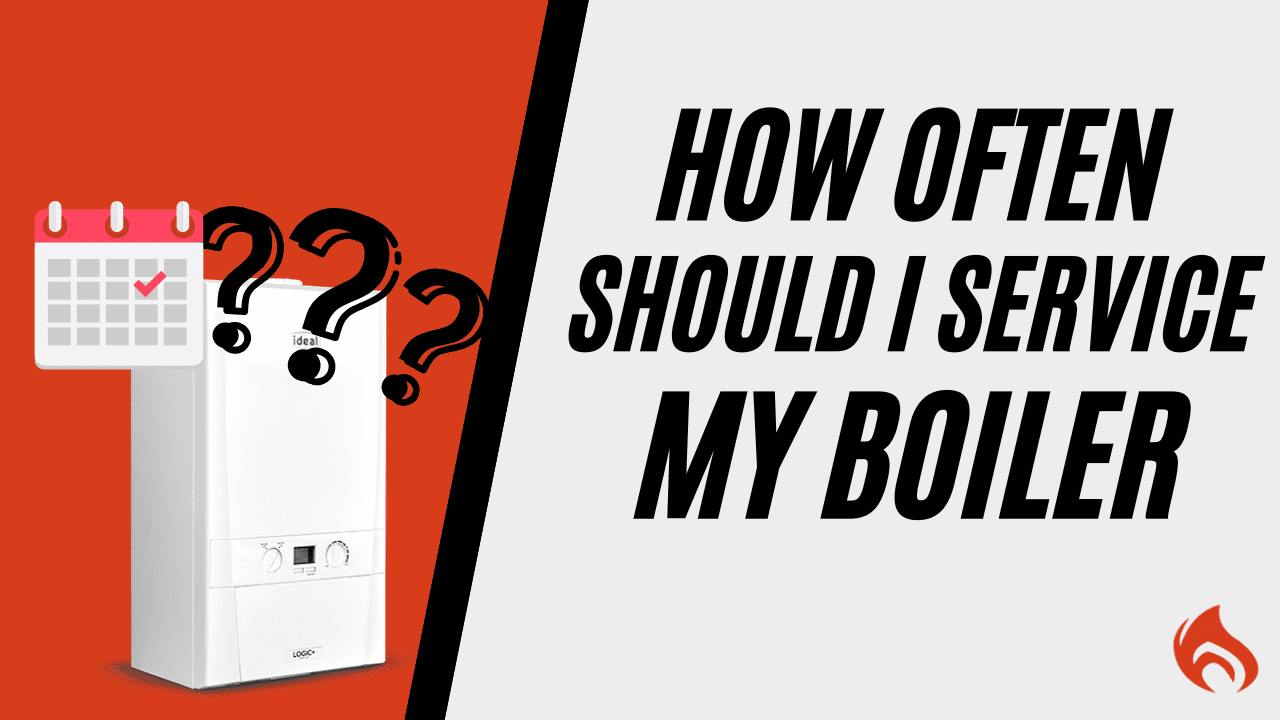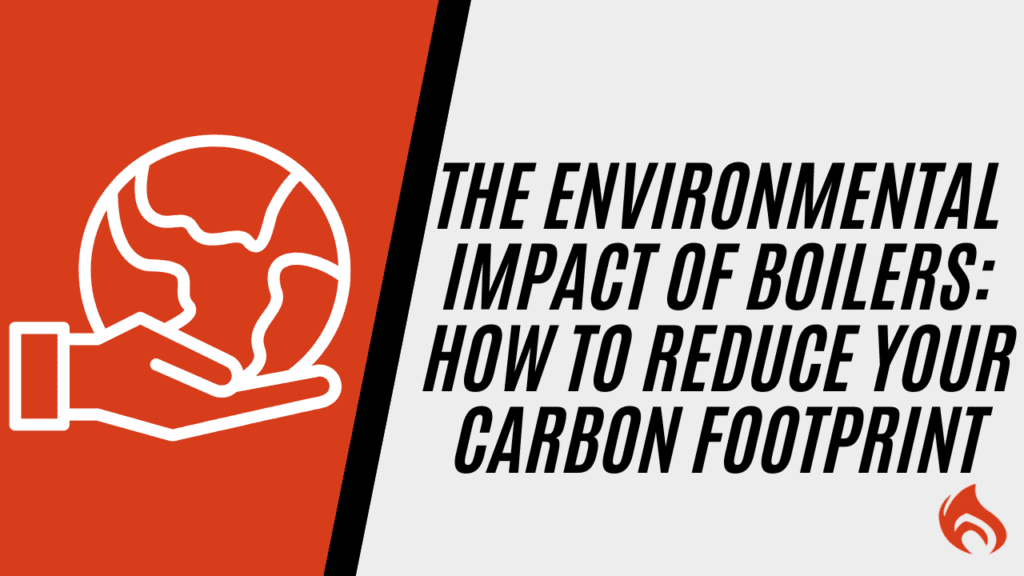
How Often Should I Service My Boiler?
How Often Should I Service My Boiler? Table of Contents Picture this: it’s the middle of winter, your home is

Want to lower your energy bills and help the planet? Your home heating system might be a bigger culprit than you think. Boilers keep us warm, but they also contribute to carbon emissions. In this blog, we’ll uncover their environmental impact and share easy, effective ways to reduce your carbon footprint without compromising comfort.
Boilers, especially older models, can have a substantial impact on the environment. Here’s how:
Boilers burn fossil fuels like natural gas, oil, or coal to produce heat. This process releases carbon dioxide (CO2), a major greenhouse gas that contributes to global warming. According to the Energy Saving Trust, heating accounts for about 55% of the energy use in a typical UK home, and a significant portion of this is due to boilers. The more energy a boiler consumes, the more CO2 is released into the atmosphere, exacerbating climate change. Additionally, homes using oil or coal-fired boilers generate even higher emissions compared to natural gas boilers, making fuel choice an important factor in environmental impact.
Older boilers, particularly non-condensing models, are often far less efficient. They typically operate with an efficiency rating of around 70-75%, meaning a significant amount of energy is wasted as heat escapes through the flue. In contrast, modern condensing boilers achieve efficiency levels of 90% or more by recycling heat that would otherwise be lost. This means non-condensing boilers require more fuel to generate the same level of warmth, leading to higher fuel consumption, increased costs, and greater environmental damage.
Some boilers, particularly older combi models, are inefficient in their water usage, leading to wasted hot water and unnecessary energy consumption. This is particularly evident in homes where water is left running while waiting for it to heat up. Poorly maintained or ageing systems can also suffer from leaks, further increasing waste. Given that water heating accounts for a large portion of household energy consumption, inefficient water usage amplifies both carbon emissions and utility expenses. Installing newer, water-efficient boilers and adopting conservation habits, such as using low-flow fixtures, can help mitigate this issue.
In addition to CO2, boilers can emit other pollutants, such as nitrogen oxides (NOx), which contribute to air pollution and have harmful effects on both human health and the environment. NOx emissions are a leading cause of smog and acid rain, which can damage ecosystems, harm wildlife, and reduce air quality in urban areas. Prolonged exposure to these pollutants has been linked to respiratory diseases, including asthma and bronchitis. Modern boilers are designed to limit NOx emissions through improved combustion technology, and switching to greener alternatives, such as heat pumps, can further reduce air pollution.

Fortunately, there are several ways to reduce the environmental impact of your boiler. Whether you’re looking to upgrade your system or make small changes to improve efficiency, these tips can help you lower your carbon footprint:
Modern condensing boilers are designed to be highly efficient, converting more fuel into usable heat and reducing waste. They typically achieve efficiency ratings of over 90% compared to older boilers, which might only reach 70-75%. Upgrading to a condensing boiler can significantly reduce your energy consumption and CO2 emissions.
If you’re looking for an even greener alternative, consider replacing your boiler with a heat pump. Heat pumps use electricity to move heat from the air or ground into your home, and they can be up to 300-400% efficient, making them an excellent option for reducing your carbon footprint.
Integrating solar thermal panels with your boiler can help reduce reliance on fossil fuels. These panels capture energy from the sun to heat water, which can then be used by your boiler, reducing the amount of gas or oil needed.
If you’re not ready to switch to a heat pump, you can still reduce your environmental impact by choosing a green energy tariff. Many energy suppliers offer tariffs that guarantee a portion or all of the electricity you use comes from renewable sources.
Proper insulation can significantly reduce the amount of heat your home loses, meaning your boiler doesn’t have to work as hard to maintain a comfortable temperature. This reduces both energy consumption and carbon emissions.
Simple measures like draught-proofing windows and doors can prevent heat loss and improve your home’s energy efficiency, further reducing the load on your boiler.
Ensuring your boiler is regularly serviced can maintain its efficiency and prolong its lifespan. An efficiently running boiler uses less fuel and emits fewer pollutants.
Air trapped in radiators can cause your boiler to work harder than necessary. Regularly bleeding your radiators can improve efficiency and reduce energy usage.
Installing a programmable thermostat allows you to set your heating to match your lifestyle, reducing energy waste by only heating your home when needed.
Zoning your heating system enables you to heat only the rooms you’re using, rather than the entire house. This can lead to significant energy savings and a lower carbon footprint.
Installing low-flow showerheads and faucets can reduce the amount of hot water your boiler needs to produce, conserving both water and energy.
Even small leaks in your hot water system can lead to significant energy waste. Fixing leaks quickly can prevent unnecessary boiler use and reduce your environmental impact.
Taking steps to reduce the environmental impact of your boiler doesn’t just benefit the planet—it also has tangible benefits for you:
Making these changes not only ensures a greener future but also provides you with economic and lifestyle benefits in the long run.
Boilers are essential for our comfort, but they also come with environmental costs. By taking proactive steps to improve your boiler’s efficiency, considering renewable energy options, and making smart choices about your home’s heating, you can significantly reduce your carbon footprint. These changes not only benefit the environment but also offer financial savings and increased comfort in your home.
Remember, every small step counts. Whether it’s upgrading your boiler, improving insulation, or simply being more mindful of your energy use, you can make a difference in reducing your impact on the planet.

How Often Should I Service My Boiler? Table of Contents Picture this: it’s the middle of winter, your home is

Combi Boiler vs Conventional Boiler: What’s the Difference? Table of Contents Choosing the right boiler for your home isn’t just